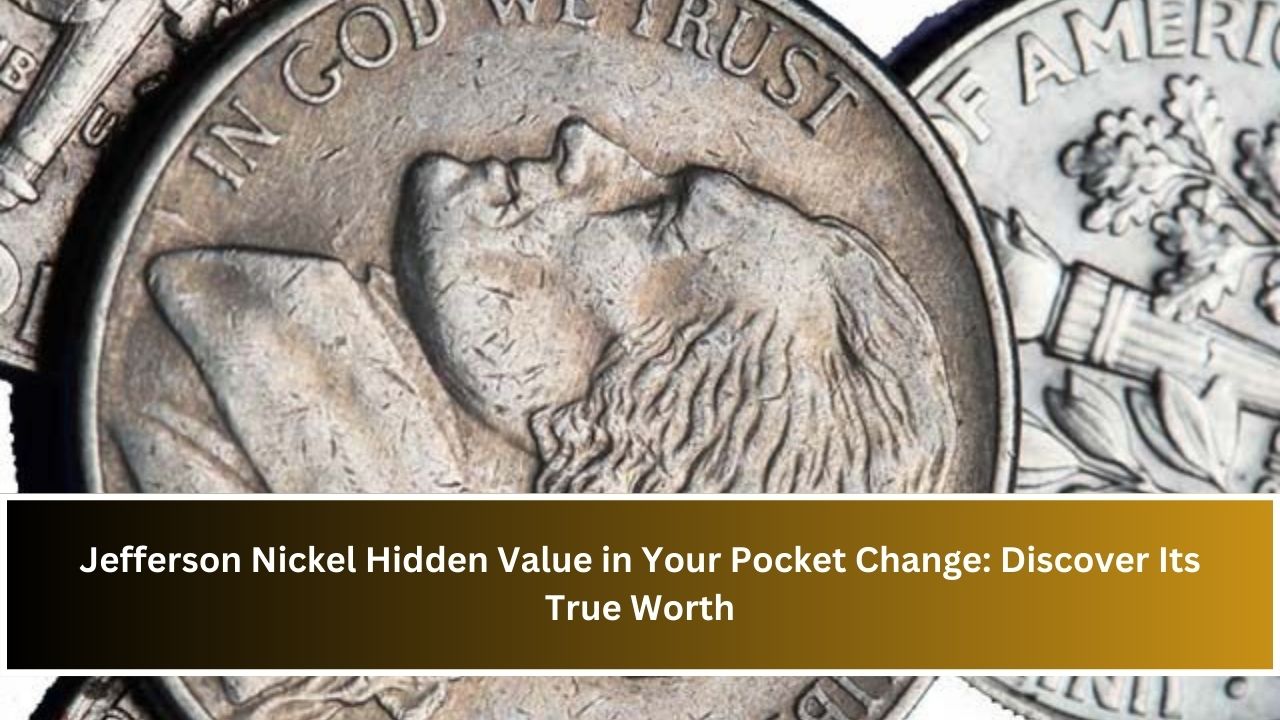Nickels are a common part of our daily lives, often overlooked as small change. However, some Jefferson Nickels could hold significant hidden value. From rare minting errors to historical designs, your pocket change might be worth more than you think. This guide will help you identify valuable Jefferson Nickels and understand their true worth.
What Is a Jefferson Nickel?
A Jefferson Nickel is a five-cent coin minted in the United States since 1938. It features President Thomas Jefferson on the front (obverse) and Monticello, his Virginia home, on the back (reverse).
Jefferson Nickels might seem like ordinary pocket change, but some hold significant value due to rarity, errors, or historical significance. By knowing what to look for and where to sell, you can turn small coins into big profits.
History of the Jefferson Nickel
1938 Introduction
The Jefferson Nickel replaced the Buffalo Nickel in 1938. Felix Schlag designed the coin, showcasing a more modern look.
During World War II, the U.S. adjusted the nickel’s composition to save metals for the war effort. These coins, often called “War Nickels,” contained 35% silver, making them more valuable today.
Wartime Nickels (1942–1945)
During World War II, the U.S. adjusted the nickel’s composition to save metals for the war effort. These coins, often called “War Nickels,” contained 35% silver, making them more valuable today.
Why Are Some Jefferson Nickels Valuable?
Certain Jefferson Nickels stand out due to their rarity, errors, or unique history. Key factors include:
- Low Mintage: Fewer coins minted in specific years make them scarce.
- Minting Errors: Coins with mistakes, like double strikes or missing details, are sought after by collectors.
- Silver Content: Wartime nickels have intrinsic value due to their silver content.
Key Dates and Valuable Jefferson Nickels
| Year | Mint Mark | Description | Estimated Value |
|---|---|---|---|
| 1939 | D | Low mintage | $10–$100 |
| 1942–1945 | P, D, S | Wartime silver nickels | $1.50–$50 |
| 1950 | D | Key date with low production | $15–$1,500 |
| 1981 | S | Proof with clear steps on Monticello | $10–$100 |
| 2009 | P, D | Low mintage due to financial crisis | $10–$75 |
Note: Values depend on coin condition and rarity.
How to Identify Valuable Jefferson Nickels
Look for Mint Marks
Mint marks indicate where the coin was produced:
- P: Philadelphia
- D: Denver
- S: San Francisco
Check for Errors
Examine the coin carefully for unusual features like double-die strikes, clipped edges, or missing details.
Inspect Coin Condition
Coins in better condition (uncirculated or with clear details) fetch higher prices.
Collecting Jefferson Nickels: Tips for Beginners
- Start Small: Focus on finding coins in circulation or buying affordable examples.
- Invest in Tools: A magnifying glass and coin album are helpful for identifying and storing coins.
- Learn the Market: Research coin values and trends to make informed decisions.
Where to Sell Valuable Jefferson Nickels
- Coin Shops: Local dealers can evaluate your coins and offer fair prices.
- Online Auctions: Platforms like eBay and Heritage Auctions connect you with collectors.
- Coin Shows: Meet experts and enthusiasts for direct sales or appraisals.
Conclusion
Jefferson Nickels might seem like ordinary pocket change, but some hold significant value due to rarity, errors, or historical significance. By knowing what to look for and where to sell, you can turn small coins into big profits.
FAQ’s
1. What is the rarest Jefferson Nickel?
The 1950-D is considered one of the rarest due to its low mintage, making it highly valuable among collectors.
2. How can I tell if my nickel is a wartime silver coin?
Wartime nickels (1942–1945) have a large mint mark above Monticello on the reverse.
3. Are Jefferson Nickels made of pure silver?
Only wartime nickels (1942–1945) contain 35% silver. Other years primarily use a nickel-copper alloy.
4. What does “proof” mean for Jefferson Nickels?
Proof coins are specially made for collectors, featuring sharp details and a mirror-like finish.

